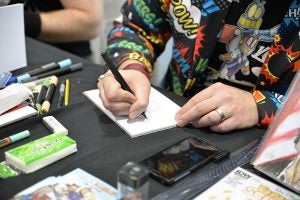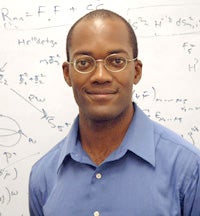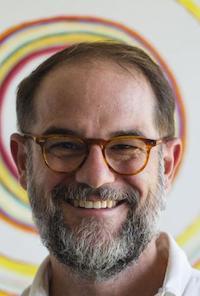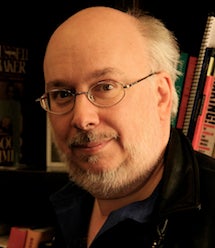The best time of the year: San Diego Comic-Con
 Comic-Con has grown from being about the comic book art form to being one of the main (if not the main) purveyor of pop culture. From movie premieres and sneak peeks to panels of stars promoting their latest on television or streaming video – if it is important in pop culture, it is happening at Comic-Con.
Comic-Con has grown from being about the comic book art form to being one of the main (if not the main) purveyor of pop culture. From movie premieres and sneak peeks to panels of stars promoting their latest on television or streaming video – if it is important in pop culture, it is happening at Comic-Con.
What are the implications for culture as a whole at Comic-Con? How are the arts, sciences and media all converging in San Diego? Experts from USC are here to answer your questions.
Contact: Jeremy Pepper at (213) 740-8606 or pepper@usc.edu
Comics and the scientific wonders of our universe
 “Comics are still a large part of ComicCon. Comics can be about far more than just superheroes, and it is amazing how powerful they are when used to communicate ideas of all kinds, whether it be informative personal stories, the scientific wonders of our universe, or a combination of both.”
“Comics are still a large part of ComicCon. Comics can be about far more than just superheroes, and it is amazing how powerful they are when used to communicate ideas of all kinds, whether it be informative personal stories, the scientific wonders of our universe, or a combination of both.”
Clifford Johnson‘s work in science ranges from teaching and research to putting science back into the general culture. He helps artists, writers, and filmmakers incorporate science into their work, appears on several TV and online shows, gives public lectures and participates in panel discussions and other events. He has been science advisor for many TV shows and movies, including Nat Geo’s Genius (featuring Einstein), Marvel’s Agent Carter (S2), Agents of Shield, Thor: Ragnarok, Avengers: Infinity War, and more. He was also science advisor for Blake Crouch’s bestselling novel “Dark Matter”.
Johnson is a professor of physics at the USC Dornsife College of Arts, Letters and Science. His research concerns the origin and evolution of the Universe and its fundamental constituents.
Johnson was part of a Facebook Live video this year on the convergence of science and comic books, is on Twitter as @asymptotia where he speaks about comics and science, and his graphic novel, “The Dialogues: Conversations about the Nature of the Universe,” is available for purchase.
Johnson is available for media interviews at Comic-Con.
Contact: (213) 821-1772 or johnson1@usc.edu.
The serious art of comic books
 “Comic conventions are essential for the life and career of comics and their creators — and the many different platforms that have a profound influence on our world.
“Comic conventions are essential for the life and career of comics and their creators — and the many different platforms that have a profound influence on our world.
“The San Diego Comic-Con is the largest comic convention in America, and is incredibly important for all the comic and entertainment worlds of our time. Here comic creators and publishers present their work to the world, and meet and greet not just their fans, but also commiserate amongst their colleagues, having essential communications and interface with their community that create lasting relationships, projects, and movements.
“Now taken very seriously in America, comics create the allegories and contemporary myths that have become a dynamic and important stories for people of all ages to understand their culture in order to hopefully make our would a better place.”
Keith Mayerson has been professionally exhibiting his art in galleries and museums since 1993, and is the creator, along with the writer Dennis Cooper, of “Horror Hospital Unplugged,” a graphic novel now considered a cult classic. Inspired by comics, his exhibitions are often installations of images that create larger narratives.
At the USC Roski School of Art and Design, Mayerson teaches ART 312: Comics Project which focuses on all aspects of comics, from writing and composition to inking and marketing through the production of an individual 15-page comic creation.
Mayerson is in the collection of the Museum of Modern Art, New York, The Whitney Museum of American Art, New York, the Museum of Contemporary Art, Los Angeles, The Los Angeles County Museum of Art, The San Francisco Museum of Art, San Francisco, The Cleveland Museum of Art, Cleveland Ohio, Columbus Museum of Art, Columbus Ohio. He was the lead comics teacher at the School of Visual Arts for 26 years, as well as teaching fine art at New York University, Columbia University, Yale University and others, before becoming a Professor of Art at the USC Roski School.
Contact: (917) 664-0470 or keith.mayerson@usc.edu
Comic-Con led to more inclusive representation
 “Comic-Con is at the heart of popular culture in the era of media convergence, the place where Hollywood meets its fans, the place where all of the different tribes in the entertainment industry come together to make deals and figure out how this whole thing works.
“Comic-Con is at the heart of popular culture in the era of media convergence, the place where Hollywood meets its fans, the place where all of the different tribes in the entertainment industry come together to make deals and figure out how this whole thing works.
If we are seeing more inclusive representations within popular media franchises, such as the Marvel cinematic universe and Star Wars, it is in part because when the showbiz folks looked out across Hall H, they saw lots of faces of female fans and fans of color. The success of Wonder Woman and Black Panther were almost certainly born here.”
Henry Jenkins is the Provost Professor of Communication, Journalism, Cinematic Arts and Education at the University of Southern California. Jenkins holds joint appointments at both the USC Annenberg School for Communication and Journalism and the USC School of Cinematic Arts. He arrived at USC in Fall 2009 after spending more than a decade as the Director of the MIT Comparative Media Studies Program and the Peter de Florez Professor of Humanities.
Jenkins is the author and/or editor of 17 books on various aspects of media and popular culture. He is currently editing a handbook on the civic imagination and writing a book on “comics and stuff”.
As one of the first media scholars to chart the changing role of the audience in an environment of increasingly pervasive digital content, Jenkins has been at the forefront of understanding the effects of participatory culture on business, politics and education. His research gives key insights to the success of social-networking websites, networked computer games, online fan communities and other advocacy organizations, and emerging news media outlets.
Jenkins was part of a Facebook Live video this year on the convergence of science and comic books, is on Twitter as @henryjenkins where he discusses pop culture and media.
Contact: (213) 740‑9727 or hjenkins@usc.edu
